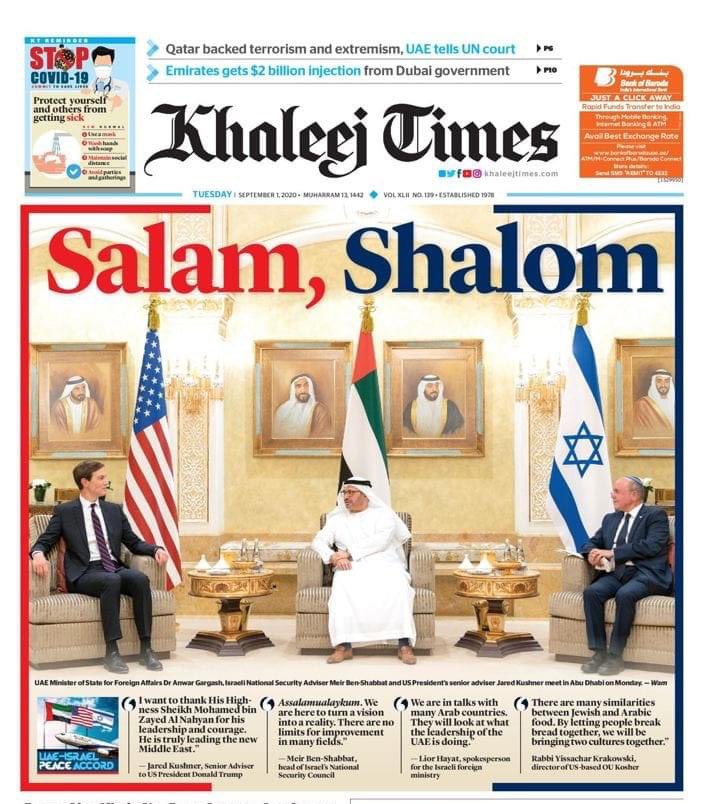What are Jews who embrace Black Lives Matter movement endorsing?
Some Jews have fallen for the delusion that they need to join BLM in order to help moderate its radicals. Others have convinced themselves that this is their opportunity to be considered worthy successors to those Jews who worked to end “Jim Crow” laws and marched with Dr. Martin Luther King. They think focusing on the attacks on Israel or even the growing number of incidents of anti-Semitism in the African-American community is to miss the point. They believe that Jews are obligated to go along with BLM because they accept the notion that the United States is irredeemably racist in nature and that there is an epidemic of murders of African-Americans by the police.Tony Baltimore School Buckles to Anti-Semitic Demands of Black Lives Matter Activists
The problem with this formulation is that it is simply wrong. Despite a troubled past, America is not a racist nation today. The statistical evidence also contradicts the widely accepted claims about a police war on blacks.
It’s also worth exploring what is in the summary of the new BLM platform. Rather than an easily supported agenda around which all Americans of good will could rally, it is a laundry list of far-left radical and Marxist proposals antithetical to the idea that BLM deserves mainstream support.
Supporters will say their demands are irrelevant, and what matters is a statement supporting the struggle against racism.
But the letter from the 600 groups is more than a restatement of idealistic notions about tikkun olam or amorphous and highly dubious claims about alleged police brutality. It goes out of its way to mischaracterize skepticism about BLM and the vicious cancel culture it has helped to spawn as morally equivalent to attacks on King from segregationists and racists.
It doesn’t merely ignore the fact that so many “peaceful protests” turned into violent riots and the way BLM activists have sought to intimidate anyone who will not bow to their agenda. It also seeks to link opposition to the movement to anti-Semitism. That isn’t just wrong. It’s outrageous since intersectional radicals who form the shock troops of the BLM movement, including cheerleaders for the Nation of Islam and its leader, Louis Farrakhan, as well as race-baiter Al Sharpton, are themselves guilty of anti-Semitism.
We can only shake our heads at the chutzpah of anti-Zionist groups like IfNotNow and Jewish Voice for Peace, which have consistently been guilty of anti-Semitism, condemning it in others. But you have to wonder how groups that are avowedly Zionist—like JCPA, the ADL, and the mainstream religious movements and synagogues—can justify legitimizing these groups by signing the BLM manifesto along with them.
An elite private school in Baltimore founded by Jews is revamping its curriculum in response to a pressure campaign by Black Lives Matter activists demanding an examination of the school's "wealth hoarding" and "tolerance of Zionism."Ambassador Michael Oren on His New Book and the Presidential Election
BLM activists' latest academic target is Baltimore’s Park School, which was founded in 1912 by Jews who were barred entry into the city’s existing private schools. In a letter to the school, an anonymous group identifying itself as the "Black at Park Organizing Collective" calls for "an examination of Park’s history: its inception, early exclusions, culture of whiteness and wealth hoarding, its tolerance of Zionism, and its parasitic relationship to Baltimore City."
The Collective, which claims to be composed of "recent and distant alumni," accused the school of promoting "anti-blackness" and "anti-black violence." It seeks radical changes to the school's curriculum, admissions, and hiring. The school, they claim, is home to "white supremacist structures and environments of learning, teaching, and community-making," and Park "has established this culture of anti-blackness as normal and permissible." The administration, they wrote, must "atone for the deep and painful anti-black violence our black peers have experienced."
The language in the letter highlights the prevalence of anti-Semitism in Black Lives Matter activism. Across the country, protesters associated with the movement have defaced Jewish institutions, demanded that American Jews denounce Israel, and embraced anti-Semitic Nation of Islam leader Louis Farrakhan, who has condemned American Jews for years.
Rabbi Mitchell Wohlberg, spiritual leader for more than 40 years at Baltimore’s Beth Tfiloh synagogue, expressed concern about the Collective’s rhetoric.
"There are a lot of code words here that have been associated with anti-Semitic tropes," Wohlberg told the Washington Free Beacon. "But I don’t like calling people anti-Semitic unless I know them and know that to be true. However, [with] those tropes of ‘parasites’ and ‘wealth hoarding,' combined with ‘tolerance of Zionism,' you have to question the motives of these people."
Park administrators declined to address the Collective’s use of anti-Semitic language, but officials told the Free Beacon the school is working with the group to implement a series of reforms, including changes to its "diversity, equity, and inclusion initiatives."
In a brief, erudite introduction to the short stories, and in our phone call, Oren says that the short story, imagination constrained by the structure of brevity, is a characteristically Jewish combination of freedom and discipline.
“The freedom-limit paradox can be confounding but also intoxicating,” Oren writes in the introduction, telling the story of “a friend who was born Jewish but hated his heritage.”
The friend accompanied Oren to synagogue for Simchat Torah, the holiday “when Jews dance and sing while embracing the scrolls.”
The friend, Oren writes, “was flummoxed. ‘They’re celebrating a book that tells them all these things they can’t do?’”
Reports Oren, “unable to grasp the contradiction,” the friend “finally, in desperation…began to study the Bible and then the Talmud, and eventually became observant.”
Before Oren rings off, I ask him, as the former ambassador and the author of Ally: My Journey Across the American-Israeli Divide, how he views the upcoming American election and its potential effects on US‐Israel relations.
“Both candidates running are very pro-Israel,” Oren says. A Biden administration might bring policy differences over “the Palestinian issue,” West Bank settlements and the Iran nuclear deal, Oren points out. He notes, though, that Trump has also offered to negotiate a deal with Iran. Oren suggests that Israel could help by spelling out clearly “what would be a good deal” with Iran.
The bigger picture, he says, is that “Israel depends on a strong and self-confident America.”
It was concerning instead to see what appeared like “a superpower that is not quite certain how to police itself, much less police the world,” Oren adds.






































